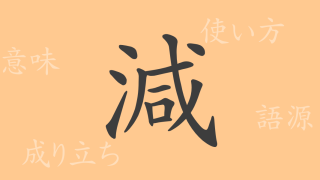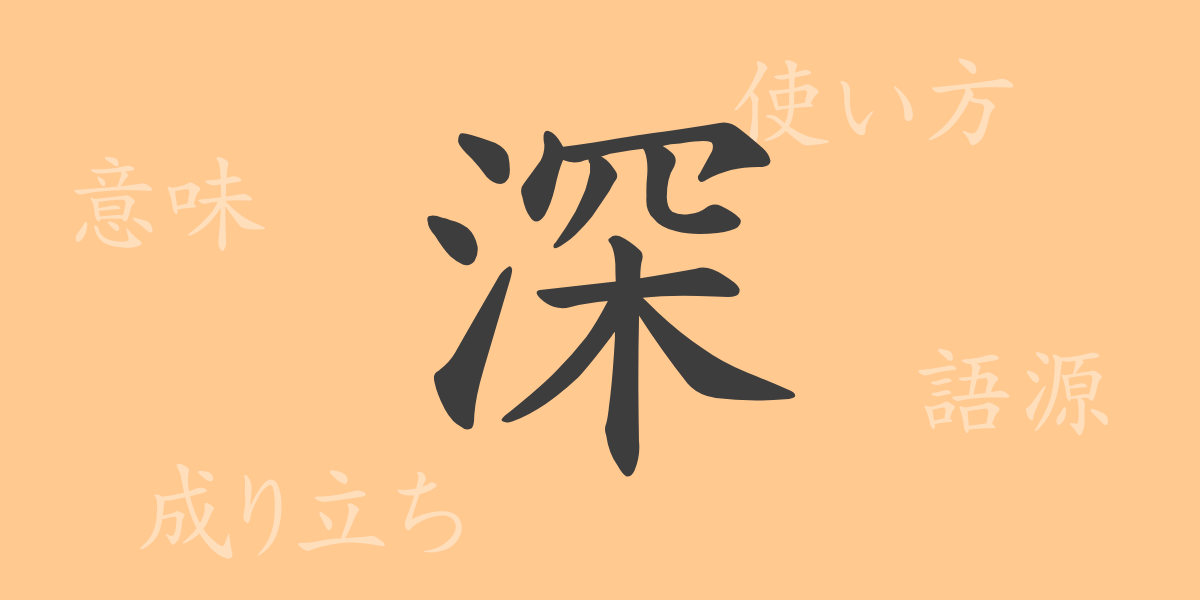The richness of the Japanese language is often reflected in its complex and profound system of Kanji characters. ‘深’ is one such Kanji, frequently used in daily life, imbuing our words with symbolic depth. This article delves into the origins, readings, applications, and the idiomatic expressions related to ‘深’, exploring the full spectrum of this character’s expressive power.
Origins of 深 (ふかい)
The Kanji ‘深’ originated in ancient China and evolved from pictographic scripts. Initially depicting water accumulating, its shape gradually morphed into the current form. Symbolizing the depth of water, ‘深’ metaphorically came to represent the depth or extent of anything substantial.
Meaning and Usage of 深
‘深’ functions as the adjective ‘deep’ and is also used in verbs like ‘deepen’ (ふかまる) and ‘make deeper’ (ふかめる). It refers to physical depth and, over time, has come to express the intensification of states, emotions, and relationships.
Readings, Stroke Count, and Radical of 深
‘深’ is used in Japanese with various readings:
- Readings: On’yomi ‘シン’, Kun’yomi ‘ふかい’, ‘ふかまる’, ‘ふかめる’
- Stroke Count: 11 strokes.
- Radical: Its radical is ‘水’, associated with water-related meanings.
Phrases, Idioms, and Proverbs Using 深
‘深’ appears in numerous phrases and idioms, reflecting its metaphorical significance:
- 深海 (しんかい): Refers to the deep parts of the sea.
- 深層心理 (しんそうしんり): The deep layers of the psyche, beneath the conscious mind.
- 深刻 (しんこく): Describes a situation as being very serious.
- 深読み (ふかよみ): Reading beyond the literal meaning to uncover hidden implications.
- 一寸の虫にも五分の魂 (いっすんのむしにもごぶのたましい): A proverb meaning even the smallest creature has its own spirit, suggesting that one should not underestimate small beings.
Conclusion on 深
The Kanji ‘深’, as suggested by its form, not only represents physical depth but also embodies psychological and emotional profundities. In the Japanese language, ‘深’ enriches our expressions significantly, playing a vital role in how we convey ideas and emotions. Understanding the diverse applications and impacts of this character enables us to embrace a richer linguistic expression.

























